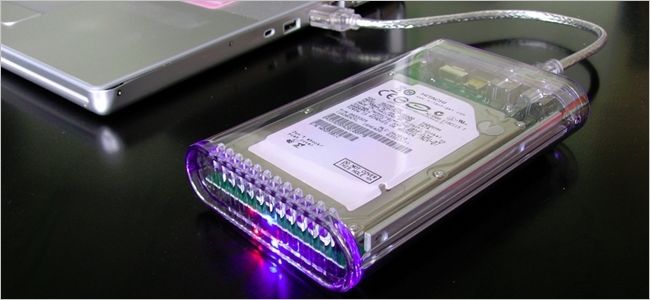Whether it is a matter of low remaining internal hard-drive space or just a personal preference, external hard-drives can be useful in many ways. With that in mind, is it safe to use an external USB hard-drive for the /home mount in Linux? Today's SuperUser Q&A post discusses the question to help a curious reader.
Today’s Question & Answer session comes to us courtesy of SuperUser—a subdivision of Stack Exchange, a community-driven grouping of Q&A web sites.
Photo courtesy of Karen (Flickr).
The Question
SuperUser reader misha256 wants to know if it is safe to use an external USB hard-drive for the /home mount in Linux:
I am getting ready to give Linux Mint a whirl. As I understand it, /home is where the user's content like documents, downloads, and media will be stored. Because my SSD hard-drive is small, I would like to use an external USB hard-drive for /home. This raises a couple of questions:
- Is there anything inherently wrong or bad in doing this?
- Will it be reasonably safe and reliable compared to using an internal SATA hard-drive?
Is it safe to use an external USB hard-drive for the /home mount in Linux?
The Answer
SuperUser contributors acejavelin and Hennes have the answer for us. First up, acejavelin:
Assuming that you have a quality USB port, cable, and external hard-drive, it should be as safe and reliable as using an internal drive, especially if you have USB 3.0. If you are using USB 2.0, then you will likely see some very noticeable performance degradation.
Followed by the answer from Hennes:
There is no problem with putting /home on an external hard-drive assuming that:
- Your external hard-drive does not get unplugged mid operation (neither Windows nor Linux likes that). Windows ships with a default setting which makes access a lot slower but safer, which means do not unplug it while in use.
- Speed will be slower than a direct connection to the SATA or SAS Bus. How much slower depends on the connection and for many things even USB 2.0 (at ~30MB/sec) might be fast enough (i.e. playing MP3's and movies, reading config files, etc.).
- This does assume that you power up the external hard-drive before you boot the laptop (mounting will fail otherwise).
- It ignores any potential USB driver bugs (easy enough to test though).
Note that there are lots of stories about external hard-drives being less reliable. I have no idea if this is true or if it is merely a result of having droppable devices that get lugged around in backpacks, going from cold (outside) to hot and humid inside (maybe a bit of both).
Do not get a WD Green Drive as an external hard-drive because they tend to park a lot. They are good for power usage if the hard-drive is used as archive storage and then allowed to spin down when not in use. When in active use (either in Windows, Linux, or any other operating system), you might get a hard-drive that spins down every minute, then spins back up, and down, and up, and down, etc. This tends to wear out the hard-drive and waiting on it to spin back up adds delays to the operating system.
Have something to add to the explanation? Sound off in the comments. Want to read more answers from other tech-savvy Stack Exchange users? Check out the full discussion thread here.

